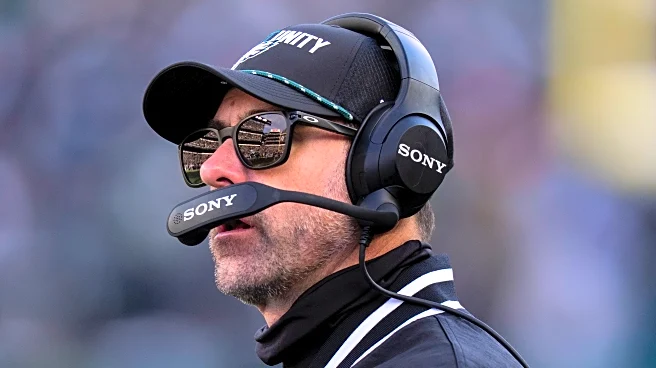Rapid Read • 7 min read
Tesla Inc. is currently facing significant legal challenges as two major product liability cases bring safety concerns about its vehicles into focus. These lawsuits allege design defects and system failures that have resulted in fatalities and serious injuries. In California, a wrongful death lawsuit has been filed by the family of Matthew Hubbard Rundell, who died in a fire inside his Tesla Model 3. The lawsuit claims the vehicle's electronic door-opening system malfunctioned, trapping Rundell inside. In Florida, a trial is underway concerning a 2019 crash where a Tesla Model S, with autopilot engaged, collided with a stationary vehicle, resulting in a pedestrian's death. The plaintiffs argue that Tesla's autopilot was defectively designed and failed to warn users about its limitations.
AD
These cases highlight critical safety issues confronting Tesla, including the risk of vehicle fires and the challenges of deploying semi-autonomous driving technologies safely. The lawsuits suggest that Tesla may have prioritized rapid innovation over thorough safety testing and consumer warnings. For regulators, consumers, and the industry, these cases underscore the need for rigorous safety standards and transparent risk communication as electric and autonomous vehicles become more prevalent. The outcomes of these trials could significantly impact Tesla's practices and the future of automotive technology liability.
The trial in Florida is scheduled to last for three weeks, considering both liability and punitive damages. Tesla has sought to protect proprietary information, but the judge has insisted on keeping the courtroom open to the public. As these cases unfold, they will be closely watched for their potential impact on Tesla's practices and electric vehicle safety regulations.
AD
More Stories You Might Enjoy













